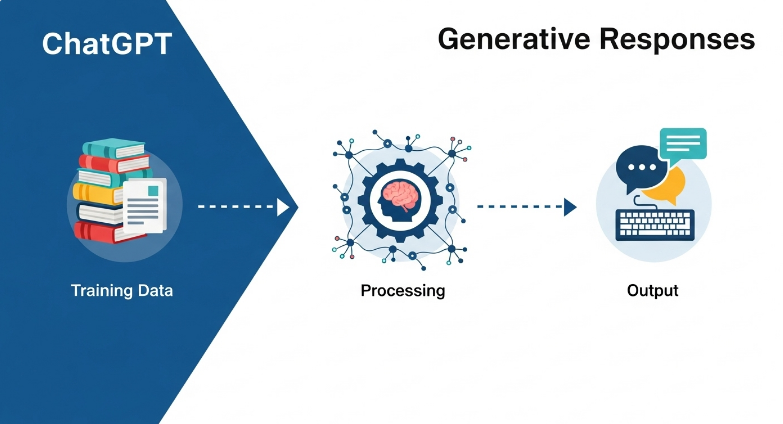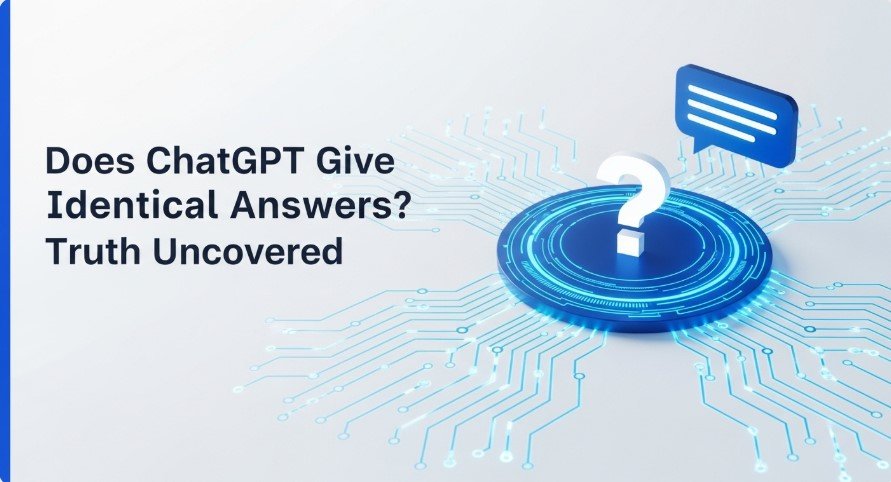ChatGPT, created by OpenAI, is a popular AI tool for answering questions, generating text, and assisting with tasks. Many users wonder: Does ChatGPT give the same answers to everyone? The answer is no, not always. While it can be consistent for factual questions, responses often vary due to its design. This article explains why ChatGPT’s answers differ, what affects them, and how to use it effectively.
How ChatGPT Works
ChatGPT is a large language model (LLM), a type of AI that uses deep learning to generate human-like text. It’s trained on massive datasets, including books, websites, and articles, to understand language patterns. Unlike search engines that pull fixed information, ChatGPT creates answers based on probabilities. This means it picks from multiple possible responses, leading to variability.

Why ChatGPT’s Answers Vary
Several factors cause ChatGPT’s responses to differ, even for the same question:
- Randomness: ChatGPT uses a probabilistic approach, selecting from possible answers. A setting called “temperature” controls this randomness, but it’s not adjustable in the web version.
- Context: Previous questions in a conversation shape answers. For example, asking “What’s a good gift?” after discussing birthdays might suggest birthday-themed gifts.
- Phrasing: Slight changes in wording, like “What is AI?” vs. “Explain AI,” can lead to different responses.
- Model Version: GPT-3.5 and GPT-4 have different capabilities. GPT-4, used in ChatGPT Plus, often gives more detailed answers.
- Training Data: Updates or biases in training data can affect responses, especially for subjective topics.
| Factor | Impact |
|---|---|
| Randomness | Picks from multiple possible answers |
| Context | Conversation history influences responses |
| Phrasing | Wording changes interpretation |
| Model Version | GPT-3.5 vs. GPT-4 affects quality |
| Training Data | Biases or updates shift answers |
When Are Answers Consistent?
ChatGPT is more consistent for factual questions with clear answers. For example, “What is 2+2?” will always return “4,” and “What is the capital of Japan?” will reliably say “Tokyo.” However, open-ended questions like “Write a story about a dog” or opinion-based queries like “What’s the best phone?” produce varied responses.
User reports on platforms like Quora and Reddit confirm this. A Reddit user noted asking ChatGPT the same question twice and getting different answers, while a Quora post mentioned consistent factual responses but varied creative outputs. Tests by AI researchers, like those at ScaleMath in 2024, showed 95% consistency for factual questions but only 60% for creative ones.
Why Response Variability Matters
Response variability affects how you use ChatGPT:
- For Personal Use: Varied answers are great for brainstorming or creative tasks, like writing poems or generating ideas. But for facts, like historical dates, verify with trusted sources.
- For Businesses: Companies using ChatGPT for customer service need consistent answers. Specific prompts or API settings can help achieve this.
- For Students: Variability can confuse students using ChatGPT for homework. Tools like Turnitin may detect ChatGPT use, so always check answers. Learn more about detection in our post on how Turnitin detects ChatGPT.
How to Get Consistent Answers
To reduce variability and get reliable responses:
- Ask Clear Questions: Specific prompts like “List three benefits of solar energy” work better than vague ones like “Tell me about solar energy.”
- Start New Chats: Begin a fresh conversation to avoid influence from prior questions.
- Verify Facts: Check critical information with sources like OpenAI’s website or academic journals.
- Use API Settings (Advanced): If using the OpenAI API, set a low temperature (e.g., 0.1) for predictable responses. See xAI’s API guide for similar tools.
People Also Ask
- Can ChatGPT give wrong answers?
Yes, it can be inaccurate, especially for niche or complex topics. Always verify with reliable sources. - How do I check ChatGPT’s answers?
Cross-reference with trusted websites, like government pages or peer-reviewed articles. - Does ChatGPT have biases?
Its training data includes internet biases, which can appear in answers. OpenAI works to reduce these, but they may persist. - Can I make ChatGPT more accurate?
Use specific prompts and fact-check responses to improve reliability.
